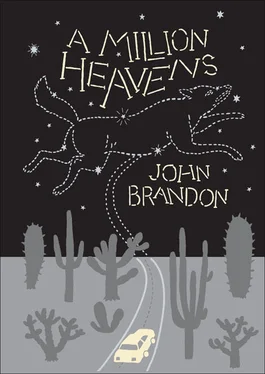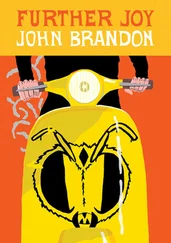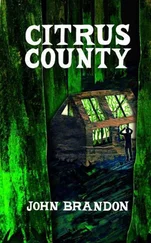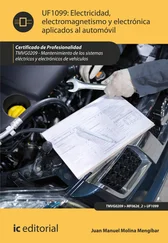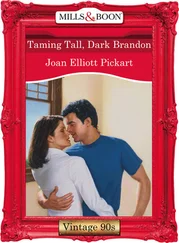No one was breathing near Cecelia, no one shifting on their haunches. The clinic was dead, no one coming in or out, no lights turning on or off. The few cars in the lot must’ve belonged to the nurses. There wasn’t even any wind. The vigils were always quiet, but this was different. There were no trucks roaring by up on the interstate, no lizards scratching about. Cecelia began to hear all the songs Reggie had written since he’d died. She wasn’t hearing them one at a time. Her mind was gathering them up like a shepherd after a storm, calling the songs to her. The old man diving for the girl’s little shoes. The young man digging the river. The birth of clouds. The streets that could be terrifying one day and cozy the next. Foreign countries and outer space. The fast tender songs and the slow mean ones. Cecelia had only ever thought of herself missing Reggie, but Reggie had been missing her exactly as much. He’d been figuring his way out of his own trouble. He had not been trying to help Cecelia with these songs, she saw. He’d just been missing her more than he missed anything else. He would miss her always. Cecelia heard all the songs at once and heard them each clearly, until one by one they reached their ends and by degrees the quiet returned.
The wolf stood in the shadows of one of the ghost towns. All the windows of the buildings were gone, but there was no broken glass. The glass had become part of the desert. The wolf had lost much of his fur and more than one tooth. The skin of his belly was loose. He had tried everything except nothing, so he stayed at the ghost town through a night and then another. And here came the third night — the gray-pink of evening. The wolf had inhabited this old settlement.
It didn’t matter if the wolf was wise to weather, if his senses were keen, if his instincts brought him safety or threat. His story was lingering, weighting the air, not blowing as it should to far-off places. The desert smelled like the inside of a bottle and sounded like nothing. The wolf craved a sign, a call to act. He wanted to taste something new. He wanted to know where he was going before he moved away from the ghost town.
He came out of the shadows, his paws ruined and his heart in a constant weak spasm, and watched a buzzard soar, its course uncertain. The wolf wanted the bird to lead him somewhere. He watched the buzzard as the darkness took over. He watched the buzzard until he saw that its course was not indeterminate, that the creature was flying in vast circles that had begun to tighten.
He didn’t know whether he was resting or quitting. He knew he should be looking for food and water, but when he surveyed the nothingness in every direction he could not get himself moving. His stomach had stopped growling. He held his arm up above his head to make sure he could, then let it fall limp. The sun could no longer burn him. He and the sun had been locked in a petty disagreement since the day he departed Lofte, and they’d grown bored with each other. It was around noon, around what would have been lunchtime if he’d been sitting in the station on his stool in front of the window. The gas station owner wondered how the station was doing, and for a reason he couldn’t pin down he began to laugh. He couldn’t picture the girls he’d hired to run the place, the girls who’d been waitresses and in time would become librarians. He remembered them as pretty, almost preposterously so, but he couldn’t picture them. He thought of enchiladas with green chiles and it was useless, like thinking of a billion dollars. He couldn’t smell the sauce or feel warm tortillas in his mouth. This wasn’t a hunger he knew anything about. It wasn’t in his stomach but in his head and limbs.
The sky grew dim as the lunch hour passed, and the gas station owner was relieved when he saw flashes of lightning in the distance. He waited and waited for rain — it must’ve been a full hour — but if there was weather it wasn’t going to hit him. The lightning stayed in the distance, too far off for its thunder to be heard. It was too much for his eyes, but he watched it anyway, a last show for him, a message he need not return.
He emptied his pockets. In one was the stumpy pencil and tattered scorecard the gas station owner had managed not to lose. Some of his marks were faded and some were trying to hide in discolored creases. The gas station owner flattened the paper on his thigh, which was just a bone now, and made a mark for today, the lightning day, the quitting day. He counted the marks without rushing and came up with thirty-six. He rested, head in his hands, eyes aching, then counted again and got thirty-seven. He thought he had one more attempt in him. He pressed his fingernail against each mark. Thirty-five. From his other pocket he emptied a handful of lizard bones, now not much more than sand. He drew the broken little bones to his nose but they only smelled like his pants, only smelled like him. The gas station owner dug a small hole with the cup of his hand and dropped in the bones and covered them over.
He wasn’t going to count the marks on his scorecard again because his eyes were worn out, and he also wasn’t going to count them because he wasn’t going to reach forty anyway so what did it matter and on top of that he didn’t count the marks again because he was allowing himself to admit what had been nagging him half the time he’d been out here: his venture, mission, his test of himself, had from the start been artificial. Great tests, you couldn’t assign them to yourself. If the universe didn’t want to test you, you wouldn’t be tested. You didn’t get to decide for yourself how much time you had and what supplies you could bring and you didn’t even get to choose your adversary. There was nothing heroic in this challenge. The gas station owner was not nobly and obliviously obsessed. He was more aware of simple concerns than ever, and those concerns were growing by the moment.
It took what felt like an eternity for the wolf to approach, the silent afternoon lightning still flashing steadily from miles away. The gas station owner sat with his knuckles to his lips, taking comfort in the salt. He watched the wolf from when he could’ve been a coyote and then through the middle distance when he took on his color and eventually the wolf’s snout and heavy paws were right there. Burrs were grown into the wolf’s fur. His eyes were yellow marbles and his ribs looked like the rotting hull of a boat. His tongue hung from his tight-closed mouth, his snout crusted white. The wolf growled without effort or meaning. The animal was desperate and so it recognized desperation. This was the least silly creature the gas station owner had ever seen.
The wolf had stopped twenty paces from the gas station owner. The wolf knew something had to happen and was waiting. He and the gas station owner could not pass each other, could not go their own ways. Their journeys had brought them to a common spot, and both were spent.
The gas station owner kept his eyes on the wolf but he rummaged behind him into his pack and found the pistol. He had two rounds left. He shifted himself onto one knee and lifted the gun shakily, aiming as best he could. His hand, empty, was heavy to him, and the gun felt like a sack of wet sand. The wolf’s eyes failed to flash at the weapon.
The gas station owner jerked his finger and the gun jumped and sounded its report. He missed low, a cloud of dust blooming from underneath the wolf. The wolf wasn’t looking at the gun anymore, but straight into the gas station owner’s eyes. He’d shot plenty of elk, but he never had to look them in the eyes. The gas station owner put his finger to the trigger again and half-pressed, not enough to fire the gun. He held the trigger static, a hair shy of the firing point, the barrel leveled at the mangy beast before him. He thought he could hit the wolf this time, his aim corrected from the miss. The wolf’s growling was even, no threat in it. The gas station owner’s brain was telling his hand to fire the gun but nothing was happening. His arm began to quake under the pistol’s weight so he braced his gun arm against his leg. He had no idea if he was trying to provide for himself or defend himself. He breathed in sharply and then went ahead and lowered the gun. He looked at the weapon, gray under a gray sky. It had one bullet in it and that bullet would not be used. It wouldn’t be used on this wolf or on the gas station owner. It would stay safe in the spinner.
Читать дальше
